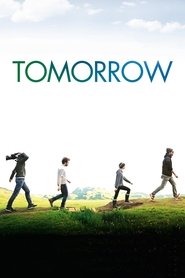David Grégoire Van Reybrouck (born 11 September 1971, in Bruges) is a Belgian cultural historian, archaeologist and author. He writes historical fiction, literary non-fiction, novels, poetry, plays and academic texts. He has received several Dutch literary prizes, including AKO Literature Prize (2010) and Libris History Prize.
Van Reybrouck was born into a family of florists, bookbinders and artists. His father, a farmer's son, spent five years in the Democratic Republic of the Congo as a railway engineer immediately after independence. He holds a doctorate from Leiden University.
Van Reybrouck's first book, De Plaag (in English: The Plague), was a cross between a travelogue and a literary whodunnit set in post-apartheid South Africa. It received several awards, including the prize for the best Flemish debut in 2002 and a shortlist nomination for the Gouden Uil, one of the leading literary prizes in the Low Countries. It was translated into Afrikaans, French and Hungarian. A longtime op-ed writer for the Flemish national newspaper De Morgen, Van Reybrouck has co-edited a volume on the federal future of Belgium (What Belgium Stands For: a Scenario, 2007) and a thought-provoking pamphlet, Pleidooi voor populisme (A Plea for Populism, 2008), which was met with controversy. The latter won the Netherlands most distinguished essay prize.
His book Congo. Een geschiedenis (in English: Congo: The Epic History of a People) was published in 2010. Over the years, Van Reybrouck has travelled extensively throughout Africa. The book is as much the result of his ten journeys through the Democratic Republic of the Congo as of the months spent in libraries and archives. He has interviewed hundreds of individuals, with a particular predilection for so-called "ordinary people", precisely because their lives and choices are so often extraordinary. The book portrays slavery and colonialism, resistance and survival. It includes archival material, interviews and personal observations. Congo. Een geschiedenis has been translated into English, French, German, Italian, Norwegian, Polish, Swedish, Danish and Finnish. Van Reybrouck has also been actively involved in organising literary workshops for Congolese playwrights in Kinshasa and Goma.
In 2020 he published Revolusi which applies to Indonesia the method he used in Congo - a combination of interviews with survivors of the events leading up to independence with historical interpretation.
In his book Against Elections: The Case for Democracy he advocates for a deliberative democracy based on sortition.
Source: Article "David Van Reybrouck" from Wikipedia in English, licensed under CC-BY-SA 3.0.
Van Reybrouck was born into a family of florists, bookbinders and artists. His father, a farmer's son, spent five years in the Democratic Republic of the Congo as a railway engineer immediately after independence. He holds a doctorate from Leiden University.
Van Reybrouck's first book, De Plaag (in English: The Plague), was a cross between a travelogue and a literary whodunnit set in post-apartheid South Africa. It received several awards, including the prize for the best Flemish debut in 2002 and a shortlist nomination for the Gouden Uil, one of the leading literary prizes in the Low Countries. It was translated into Afrikaans, French and Hungarian. A longtime op-ed writer for the Flemish national newspaper De Morgen, Van Reybrouck has co-edited a volume on the federal future of Belgium (What Belgium Stands For: a Scenario, 2007) and a thought-provoking pamphlet, Pleidooi voor populisme (A Plea for Populism, 2008), which was met with controversy. The latter won the Netherlands most distinguished essay prize.
His book Congo. Een geschiedenis (in English: Congo: The Epic History of a People) was published in 2010. Over the years, Van Reybrouck has travelled extensively throughout Africa. The book is as much the result of his ten journeys through the Democratic Republic of the Congo as of the months spent in libraries and archives. He has interviewed hundreds of individuals, with a particular predilection for so-called "ordinary people", precisely because their lives and choices are so often extraordinary. The book portrays slavery and colonialism, resistance and survival. It includes archival material, interviews and personal observations. Congo. Een geschiedenis has been translated into English, French, German, Italian, Norwegian, Polish, Swedish, Danish and Finnish. Van Reybrouck has also been actively involved in organising literary workshops for Congolese playwrights in Kinshasa and Goma.
In 2020 he published Revolusi which applies to Indonesia the method he used in Congo - a combination of interviews with survivors of the events leading up to independence with historical interpretation.
In his book Against Elections: The Case for Democracy he advocates for a deliberative democracy based on sortition.
Source: Article "David Van Reybrouck" from Wikipedia in English, licensed under CC-BY-SA 3.0.
Show more expand_more
keyboard_double_arrow_down
